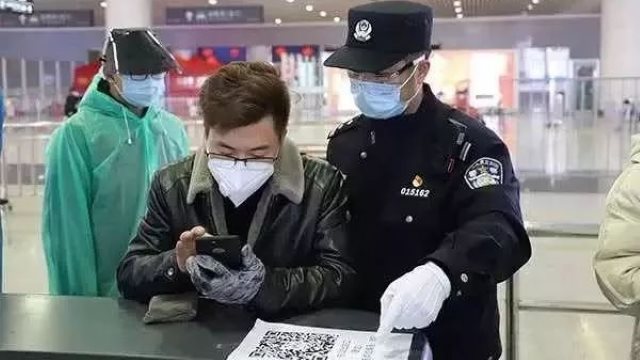
Exploiting control measures to prevent the spread of the virus, authorities in China track down members of The Church of Almighty God and other banned groups.
China’s excessive use of technology to monitor its citizens has increased even more during the coronavirus epidemic, experts say, indicating that the CCP uses it as a pretext to accelerate the mass collection of personal data through facial recognition and other means in the name of preserving public health. Members of the banned religious groups are among the primary targets.
According to the information received by Bitter Winter, during the spread of the virus, the CCP didn’t stop arresting members of The Church of Almighty God, which is the single most persecuted religious group in China. At least 100 members in Sichuan, Fujian, and Shandong provinces have been arrested since January.
As noted in a 2018 report by the United Nations High Commissioner for Human Rights, “During 2014-2018, the Chinese Communist Party’s monitoring, arrest, and persecution had caused at least 500,000 Church of Almighty God (CAG) Christians to flee their home, and several hundred thousand families had been torn apart.”
“I hide under a bed every time officials come for a house inspection,” one of the CAG members on the run said helplessly to Bitter Winter. She has been on the government’s wanted list, compiled in the framework of the nationwide campaign “to clean up gang crime and eliminate evil,” authorities offering awards from 5,000 to 10,000 RMB (about $ 700-1,400) for information about her.
Forced to leave their homes to evade persecution, many believers from groups designated as xie jiao seek refuge in rented apartments far from their former places of residence. As monitoring and information collection measures intensified in the past few months, the already difficult situation of these believers on the run has become even more complicated and dangerous. To enforce that people would stay at home during the spread of the virus, the government dispatched large numbers of staff to investigate tenants in each household, which increased probability for members of the banned groups to be found and arrested.
A government employee from Shandong Province revealed that his superiors ordered him in early February to investigate non-local tenants in his residential community, paying particular attention to believers of banned religious groups like the CAG and Falun Gong.
A CAG member’s home in the northern province of Hebei was inspected by an epidemic prevention group, consisting of representatives from the local community, medical personnel, and police officers. He was identified as a member of a xie jiao and was arrested, interrogated, and tortured. One of the officers hit him with a desk calendar on the face after he covered his mouth with a plastic bag, while another stepped on his foot and beat his calves with an iron rod, gravely injuring them. The officers also forced him to hold a working electric baton in his hands.
According to a member of an epidemic prevention group, the government of his locality imposed a fine of 5,000 RMB (about $ 700) on the landlords who are found to have rented out their properties or taken in tenants without authorization. Anyone who provides information about such cases is rewarded with 2,000 RMB (about $ 280).
In February, three community staff members in the northern province of Shanxi came to inspect the home where a CAG member on the run lived, the next day after she moved in. For fear of being arrested, she did not provide her ID information, and the personnel reported her to the local police station as “a suspicious person.”
Amid the epidemic, people entering and leaving communities, shopping malls, offices, and other public places in China are required to scan a health code on their mobile phones or fill out personal information forms. Pharmacies and stores demand real name registration from their customers buying medicine or daily supplies. These surveillance measures add to the challenges faced by CAG believers on the run.
A CAG believer recounted how she went to a pharmacy to get medicine for the sore throat, coughing, and diarrhea she started experiencing, and had to register her name, age, and mobile phone number to buy them.
Another CAG member from Shanxi’s Jinzhong city told Bitter Winter that on February 14, a clerk in a bakery stopped her at the door, demanding to register her name, ID card number, mobile phone number, and home address before entering. “This is an order from the government, and no one is spared,” the clerk explained.
Source: Bitter Winter












